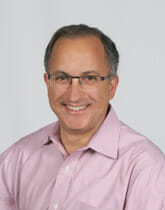Return to
Politics and Religion
Conversations Beyond Science and Religion
Hosted by Philip Comella
Beyond science and religion, there is more to the story of life and the cosmos.
We’ll tackle the big questions of why we are here and where the world may be heading. From theologians and scientists to those in the school of New Thought, we’ll address the individual circumstances that led to the formation of their theories and views. Challenging common beliefs and scientific findings, host Philip Comella talks with experts and authors to find a new worldview of hope.
Life in a Finely Tuned Universe with Luke Barnes
Podcast: Play in new window | Download
We are all familiar with the concept of tuning, particularly in regard to musical instruments. We know that to “stay in tune” means to play with the right pitch and to harmonize with other instruments. Even the untutored ear knows when a piano is out-of-tune: something sounds out-of-balance and disjointed. Sounds that only roughly track a melody. It turns out that when scientists started studying the universe at large they discovered a tuning on a completely different level. Indeed, the deeper scientists look, the more fine-tuned our particular universe looks. Fine-tuned, that is, to allow for the possibility of life. At this point, scientific observation crosses over into philosophical speculation and even theism. How is it possible for the big bang to have produced a universe so precisely balanced? The fine-tuning of the universe has become one of the most written-about topics in science, forming the theme of a number of best-sellers, such as The Accidental Universe by Paul Davies and the intimidating, but highly readable, The Anthropic Cosmological Principle by John Barrows and Frank Tipler. This show’s guest, Luke Barnes, is co-author of new book, A Fortunate Universe: Life in a Finely Tuned Cosmos, that provides an open-ended and entertaining perspective on the great fine-tuning mystery. Listen in as Luke Barnes, Professor of Physics at Western Sydney University, joins Philip Comella in a no-holds barred conversation on a topic that continues to challenge many of science’s basic assumptions.
Luke Barnes: Profiles

Conversations Beyond Science and Religion with Philip Comella
Philip Comella is a lawyer, philosopher, and author of The Heaven at the End of Science: An Argument for a New Worldview of Hope. This book, which started as a college essay in 1974, is the culmination of thirty-five years of research on the big questions of existence. Blending philosophy, science, religion and the paranormal, the book argues that it is time to replace the materialistic model of modern science with a framework that better accounts for the full range of human experience. Mr. Comella is a frequent radio guest, writer, and speaker on the connection between science and religion. He lives with his wife and daughter in Glen Ellyn, Illinois.

